If you're wondering whether dry mustard and ground mustard are interchangeable, the answer is: not without adjustments. In this guide, we break down the critical differences between dry mustard and ground mustard, including substitution ratios, flavor profiles, and when to use each for best results in your recipes.
Table of Contents
- What Is Dry Mustard?
- What Is Ground Mustard?
- Key Differences: Dry Mustard vs Ground Mustard
- Uses and Applications in Cooking
- Buying Guide: Choosing the Right Mustard Powder
- Tips & Tricks: Maximizing Flavor from Mustard Powders
- Frequently Asked Questions
- Conclusion
What Is Dry Mustard?
Dry mustard is pure ground mustard seeds with no additives. It's potent and requires liquid to activate its full pungent flavor. This makes it ideal for recipes where you need precise control over flavor intensity without extra moisture.
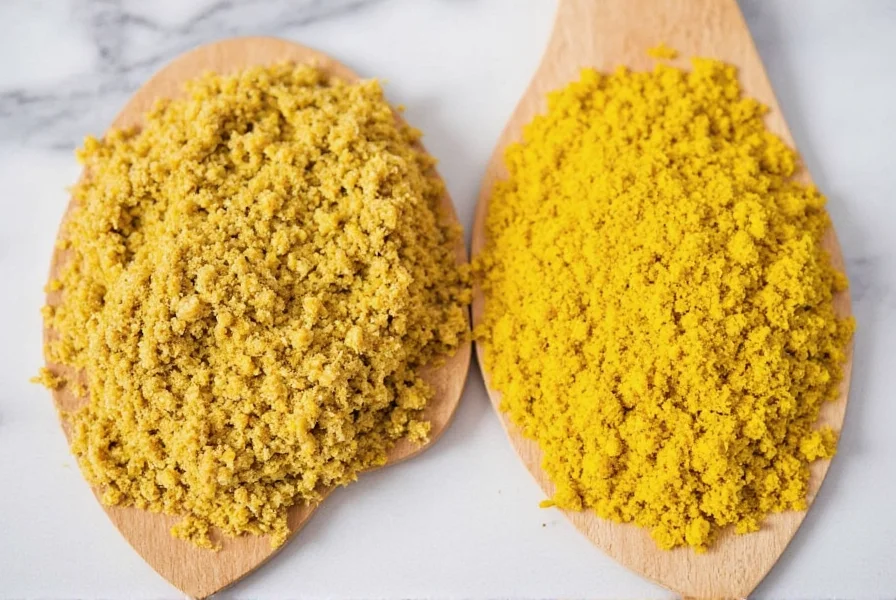
Common Uses:
- Making homemade mustard
- Marinades and dry rubs for meats
- Spice blends for barbecue or rubs
- Flavoring sauces where moisture balance matters
What Is Ground Mustard?
Ground mustard often contains mustard seeds blended with additives like flour, turmeric, salt, or sugar. This creates a milder, more balanced flavor ready for immediate use in everyday cooking.
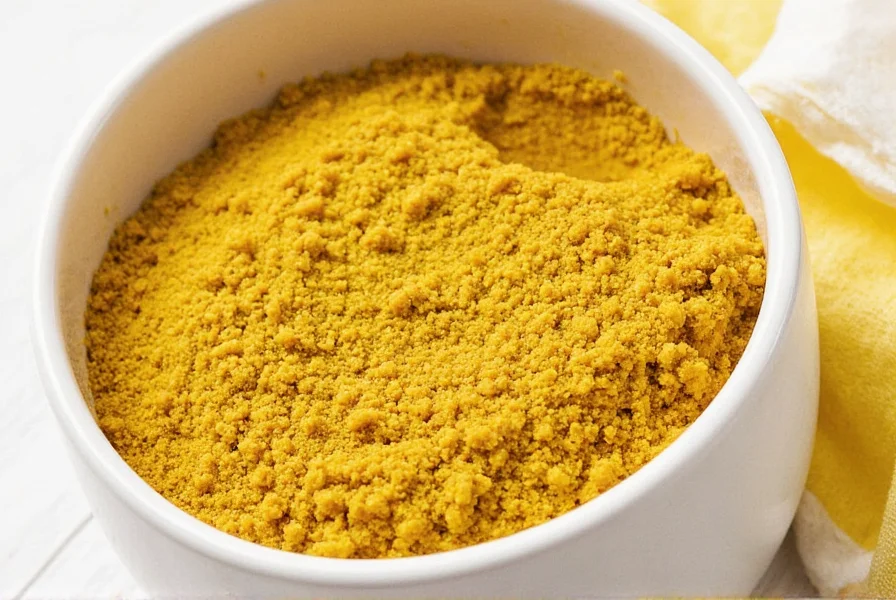
Common Uses:
- Cole slaw dressings
- Glazes for ham or meats
- Quick sandwich spreads
- Everyday seasoning where subtle flavor is preferred
Key Differences: Dry Mustard vs Ground Mustard
| Category | Dry Mustard | Ground Mustard |
|---|---|---|
| Definition | 100% ground mustard seeds, no additives | Mustard seeds + fillers (e.g., flour, turmeric, salt) |
| Flavor Intensity | Strong, sharp, pungent | Milder, rounded, less intense |
| Activation | Needs liquid to release full flavor | Can be used dry or activated with liquid |
| Texture | Fine powder | Slightly coarser due to additives |
| Shelf Life | Long-lasting (1-2 years) | Shorter (1 year due to additives) |
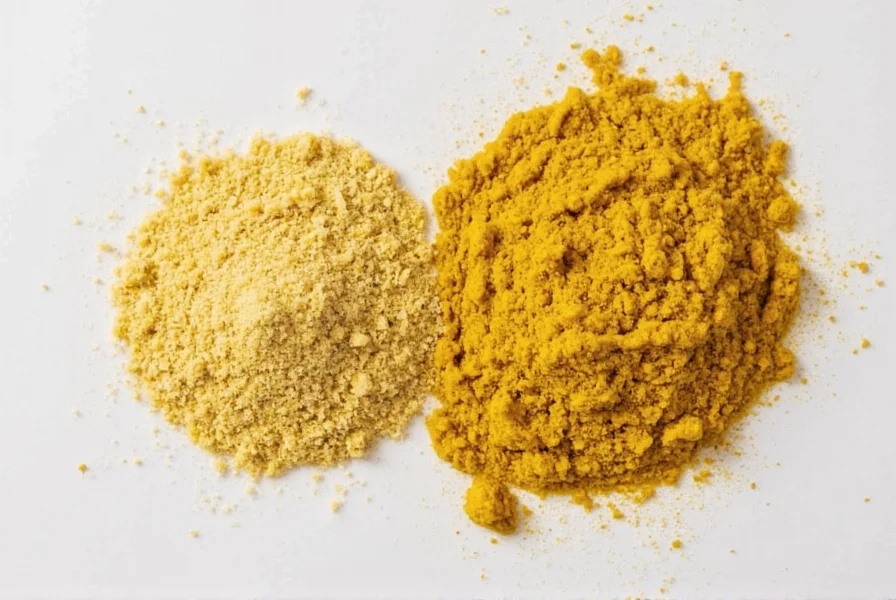
Which One Should You Use?
For bold, sinus-clearing heat in homemade mustard or rubs, choose dry mustard. For ready-to-use applications like dressings or glazes where mildness matters, use ground mustard. Always check ingredient lists to confirm what you're buying.
Uses and Applications in Cooking
Both types have unique strengths. Here's how to maximize each:
Dry Mustard Uses
- Homemade Mustard: Combine with water, vinegar, or wine for custom flavors. Add smoked paprika for BBQ-style mustard.
- Meat Rubs: Mix with brown sugar, garlic powder, and chili flakes for ribs or brisket. The pure powder ensures no extra moisture.
- Veggie Marinades: Add to olive oil and lemon juice for tofu or cauliflower. It won't dilute the marinade.
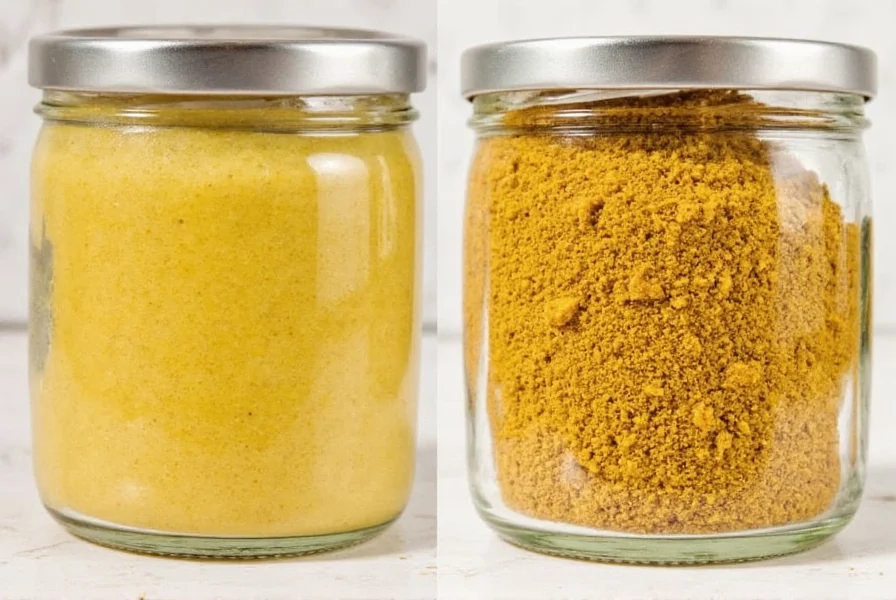
Ground Mustard Uses
- Cole Slaw Dressing: Blend into creamy dressings for balanced tang without overpowering.
- Ham Glaze: Mix with brown sugar and pineapple juice for sticky, sweet-savory glaze.
- Deviled Eggs: Add a teaspoon to yolk mixture for subtle depth.
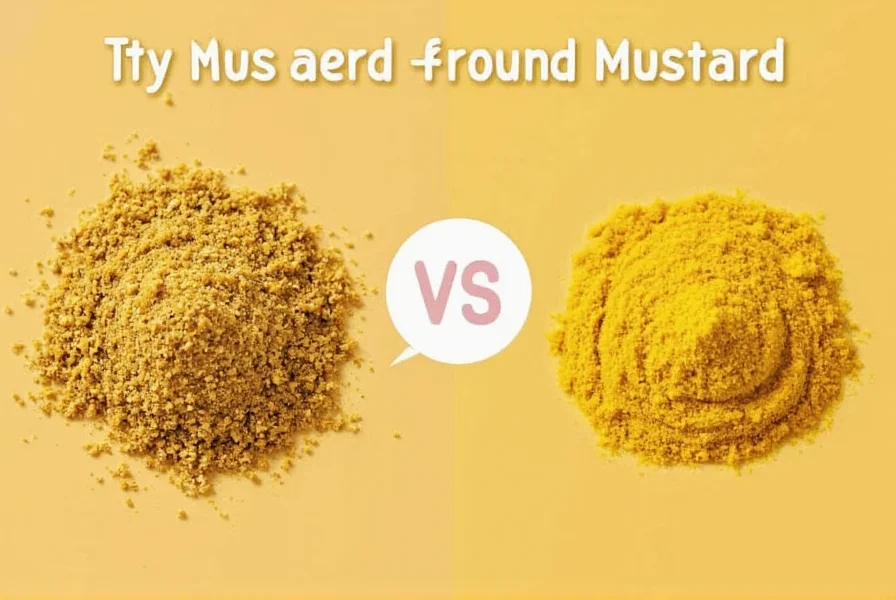
Buying Guide: Choosing the Right Mustard Powder
Always check ingredient lists. Pure dry mustard should list only "mustard." Ground mustard often includes fillers. Here's a quick reference:
| Product Name | Type | Ingredients | Flavor Profile | Best For |
|---|---|---|---|---|
| Spice Hunter Dry Mustard | Dry Mustard | 100% ground mustard seed | Hot, pungent, robust | Homemade mustard, marinades, spice blends |
| McCormick Ground Mustard | Ground Mustard | Mustard, wheat flour, turmeric, salt | Mild, balanced, versatile | Baking, pickling, sauces, everyday use |
| Penzey's Mustard Powder | Dry Mustard | Whole yellow mustard seeds, freshly ground | Sharp, clean, bold | Professional cooking, serious home chefs |
| Badia Ground Mustard | Ground Mustard | Mustard, natural flavors, anti-caking agent | Mellow, smooth | Quick recipes, salad dressings, sandwiches |
Storage Tips
- Store in a cool, dark place like a pantry or spice cabinet
- Use within 1–2 years for maximum potency
- Airtight containers prevent clumping and preserve flavor
Tips & Tricks: Maximizing Flavor from Mustard Powders
Unlock the full potential of your mustard powder with these expert techniques:
Activate the Heat Properly
Dry mustard becomes most potent when mixed with cold liquid (water or vinegar). Allow 5-10 minutes for full flavor development before tasting. This is crucial for marinades and sauces.
Blend for Custom Flavors
- Add cayenne for extra heat
- Mix with smoked paprika for smoky depth
- Combine with honey for sweet-spicy glazes
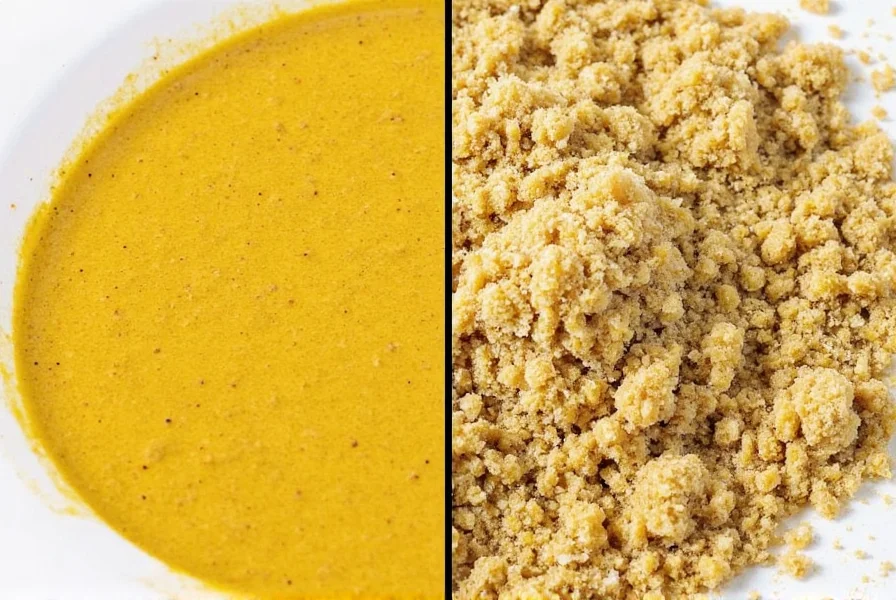
Substitution Tips
- Use 1 tsp dry mustard for every 1 tbsp prepared mustard (adjust liquid in recipe)
- For ground mustard substitution: use 1.5 tsp ground mustard for every 1 tsp dry mustard
- Gluten-free? Check for wheat flour in ground mustard. Pure dry mustard is naturally gluten-free.
Frequently Asked Questions
Here are answers to the most common questions about dry mustard and ground mustard:
Can I substitute dry mustard for ground mustard in recipes?
Yes, but adjust quantities. Use 1 teaspoon dry mustard for every tablespoon of ground mustard. Dry mustard is more potent, so start with less and taste before adding more. Ground mustard contains fillers, so it won't deliver the same intensity.
Is ground mustard gluten-free?
Not always. Many brands add wheat flour as a bulking agent. Look for "gluten-free" labels or check ingredients: pure dry mustard is naturally gluten-free, while ground mustard often contains gluten. Always verify before using in gluten-sensitive recipes.
Why do recipes specify dry mustard instead of prepared mustard?
Dry mustard provides intense flavor without adding extra liquid. It's essential for dry rubs, spice blends, and recipes where moisture balance matters (like cake batters). Prepared mustard contains vinegar and water, which would alter the recipe's texture.
Which is hotter: dry mustard or ground mustard?
Dry mustard is significantly hotter because it's pure mustard seed powder. Ground mustard contains fillers like flour or turmeric that dilute the heat. For maximum pungency, choose dry mustard; for milder flavor, use ground mustard.
How long do mustard powders last?
Dry mustard stays potent for 1-2 years in airtight containers. Ground mustard with additives loses flavor faster (about 1 year). While they don't spoil, they gradually lose pungency over time. Store in cool, dark places for best results.
Can I use ground mustard to make homemade mustard?
It's not recommended. Ground mustard contains fillers like flour or turmeric that prevent proper activation and alter texture. For authentic homemade mustard, use pure dry mustard powder to control flavor and consistency.
Conclusion
Dry mustard and ground mustard serve different purposes in the kitchen. Dry mustard delivers intense, pure flavor for precision cooking, while ground mustard offers convenience for everyday use. Always check ingredient lists to avoid surprises—especially for gluten-free needs. With this guide, you'll confidently choose the right mustard for every recipe, from smoky rubs to creamy coleslaw.
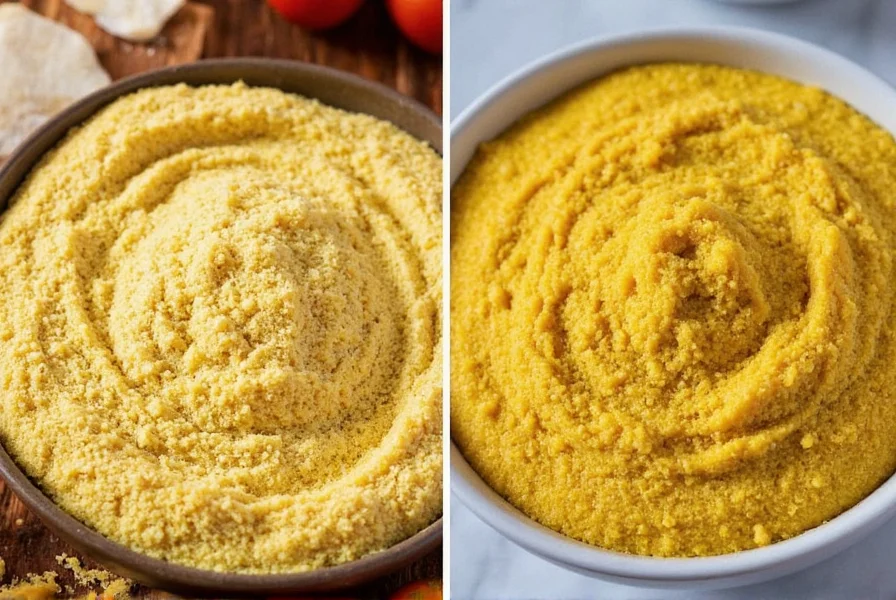

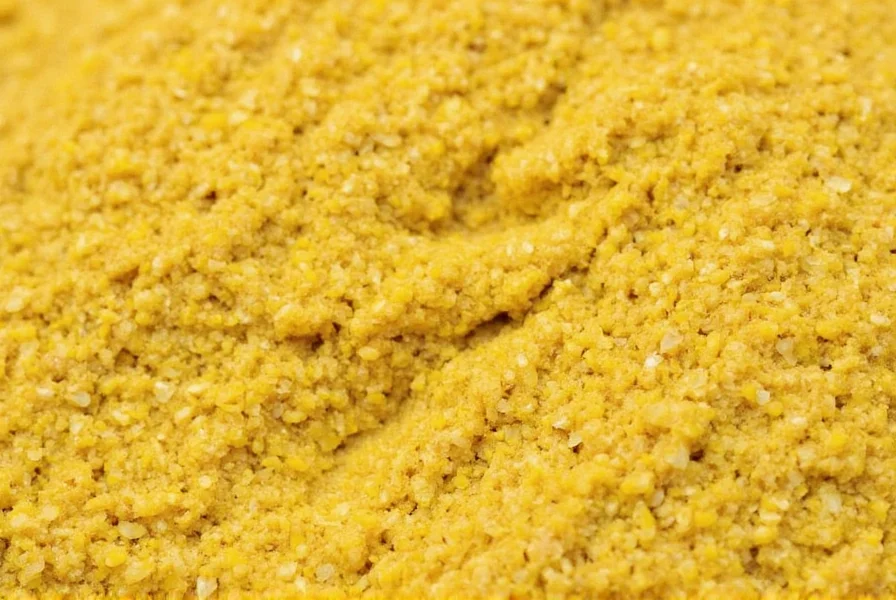









 浙公网安备
33010002000092号
浙公网安备
33010002000092号 浙B2-20120091-4
浙B2-20120091-4